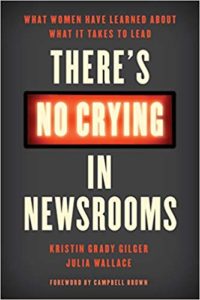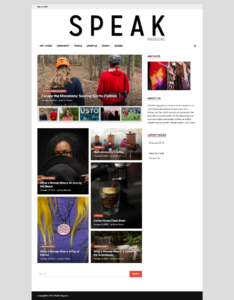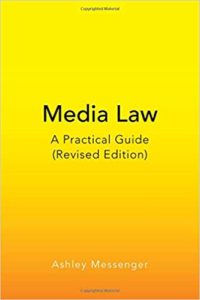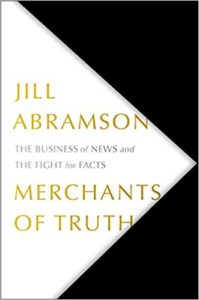Where technology and copyright collide
By Carolyn Schurr Levin
There is nothing simple about copyright. The law is complex, with so many nuances. In this first CMR legal column, we analyze a pending copyright dispute involving newly developed technology in an effort to assist students and advisers as similar issues arise.
 Audible, the Amazon.com audiobook company that bills itself as “the world’s largest seller and producer of audiobooks and other spoken-word entertainment,” introduced a new feature in July 2019 that displays the text of a book while it is read. The feature, called Audible Captions, allows listeners “to follow along with a few lines of machine-generated text as they listen to the audio performance,” according to Audible’s website. “We developed this technology,” Audible’s website states, “because we believe our culture, particularly in under-resourced environments, is at risk of losing a significant portion of the next generation of book readers. We have heard from so many teachers and educators that they want to find new ways to improve literacy rates and inspire students to pick up a book and read.”
Audible, the Amazon.com audiobook company that bills itself as “the world’s largest seller and producer of audiobooks and other spoken-word entertainment,” introduced a new feature in July 2019 that displays the text of a book while it is read. The feature, called Audible Captions, allows listeners “to follow along with a few lines of machine-generated text as they listen to the audio performance,” according to Audible’s website. “We developed this technology,” Audible’s website states, “because we believe our culture, particularly in under-resourced environments, is at risk of losing a significant portion of the next generation of book readers. We have heard from so many teachers and educators that they want to find new ways to improve literacy rates and inspire students to pick up a book and read.”
Book publishing companies, however, were less than pleased with the announcement about the launch of Audible Captions. On August 23, 2019, seven publishers—Chronicle Books, Hachette Book Group, HarperCollins Publishers Macmillan Publishing Group, Penguin Random House, Scholastic, and Simon & Schuster—filed a federal copyright infringement lawsuit against Audible alleging that Audible Captions infringes the copyrights in their books. The publishers are seeking a court order to stop the launch of Audible Captions, as well as collecting an award of monetary damages for the alleged infringement Continue reading “Legal analysis: Audible captions leads to copyright infringement suit”

 So is communication between editors-in-chief and the top brass of their colleges and universities.
So is communication between editors-in-chief and the top brass of their colleges and universities. The co-editors-in-chief of the college newspaper that I advise are women. Last year’s editor-in-chief was a woman. In fact, in my nine years as the paper’s faculty adviser, the vast majority of the editors have been women. They have been talented and confident and unafraid to use the skills they are honing on campus at their summer internships or, after they graduate, in the workplace. Yet, are college newspapers, which, according to anecdotal evidence, are often largely staffed and led by female students, reflective of the workplace these students will enter upon graduation? What awaits these passionate young female journalists? Can they rise to the same level that they have achieved on campus, where running the student newspaper makes them campus leaders?
The co-editors-in-chief of the college newspaper that I advise are women. Last year’s editor-in-chief was a woman. In fact, in my nine years as the paper’s faculty adviser, the vast majority of the editors have been women. They have been talented and confident and unafraid to use the skills they are honing on campus at their summer internships or, after they graduate, in the workplace. Yet, are college newspapers, which, according to anecdotal evidence, are often largely staffed and led by female students, reflective of the workplace these students will enter upon graduation? What awaits these passionate young female journalists? Can they rise to the same level that they have achieved on campus, where running the student newspaper makes them campus leaders? The paper, “The Best Medium for the Story: A Case Study of Integrated Student Media” was published in volume 56 of the 2019 College Media Review Research Annual. The
The paper, “The Best Medium for the Story: A Case Study of Integrated Student Media” was published in volume 56 of the 2019 College Media Review Research Annual. The 




 Kirstie Hettinga, Assistant Professor of Communication at California Lutheran University, and Alyssa Appelman, Assistant Professor of Communication at Northern Kentucky University, will present “ERRORS, REQUESTS, APOLOGIES: A case study of 50 years of corrections in a college newspaper.”
Kirstie Hettinga, Assistant Professor of Communication at California Lutheran University, and Alyssa Appelman, Assistant Professor of Communication at Northern Kentucky University, will present “ERRORS, REQUESTS, APOLOGIES: A case study of 50 years of corrections in a college newspaper.”